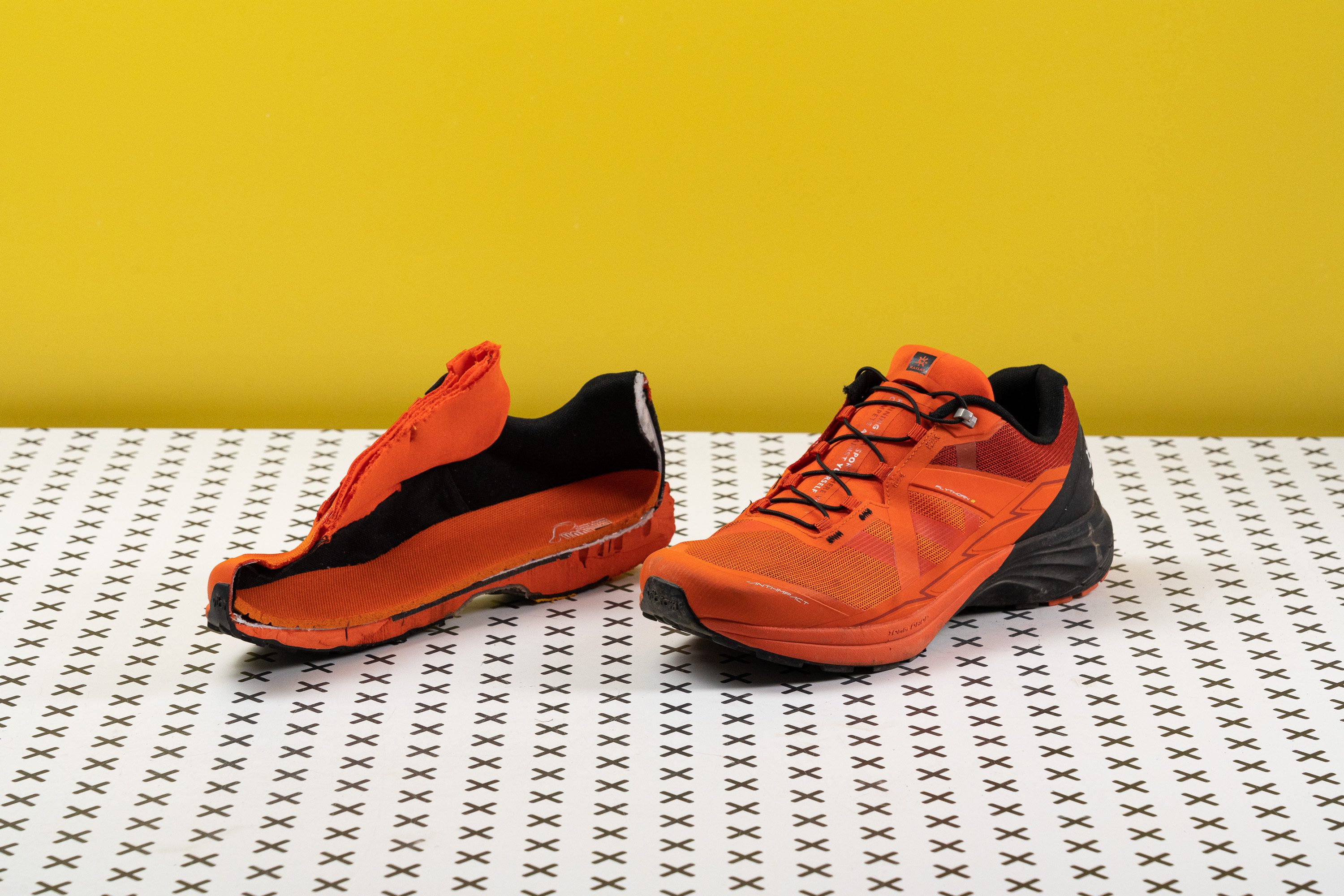Our verdict
Pros
- Comfortable fit
- Secure lockdown
- Very flexible
- Good ground contact
- Breathable
- Well-made
- Quick and easy lacing
- Lace pocket
Cons
- Lacks bounce
- Firm cushioning
- Heavy for a speed shoe
- Grip is not for technical trails
Audience verdict
- Top 14% in trail running shoes
- Top 18% in neutral running shoes
Comparison
The most similar running shoes compared
+ + Add a shoe | |||||
|---|---|---|---|---|---|
| Audience score | 90 Superb! | 89 Great! | 89 Great! | 86 Good! | |
| Price | £140 | £130 | £170 | £140 | |
| Trail terrain | LightModerate | Light | Light | LightModerate | |
| Shock absorption | - | High | Moderate | Moderate | |
| Energy return | - | Moderate | Moderate | Moderate | |
| Arch support | Neutral | Neutral | Neutral | Neutral | |
| Weight lab Weight brand | 10.6 oz / 301g 10.3 oz / 291g | 10.1 oz / 286g 10.1 oz / 286g | 10.4 oz / 296g 10.4 oz / 295g | 10.1 oz / 286g 9.2 oz / 260g | |
| Drop lab Drop brand | 10.3 mm 10.0 mm | 9.6 mm 9.5 mm | 10.2 mm 6.0 mm | 7.2 mm 6.0 mm | |
| Strike pattern | Heel | HeelMid/forefoot | Heel | Mid/forefoot | |
| Size | - | True to size | True to size | True to size | |
| Midsole softness | - | Soft | Firm | Soft | |
| Difference in midsole softness in cold | - | Normal | Small | Big | |
| Plate | ✗ | ✗ | Rock plate | ✗ | |
| Toebox durability | - | Very good | Bad | Bad | |
| Heel padding durability | - | Good | Decent | - | |
| Outsole durability | - | Good | Good | - | |
| Breathability | - | Warm | Breathable | Moderate | |
| Width / fit | Narrow | Medium | Medium | Narrow | |
| Toebox width | - | Medium | Medium | Narrow | |
| Stiffness | Stiff | Moderate | Flexible | Moderate | |
| Torsional rigidity | Moderate | Moderate | Flexible | Flexible | |
| Heel counter stiffness | Stiff | Stiff | Flexible | Moderate | |
| Lug depth | 3.0 mm | 3.2 mm | 2.5 mm | 2.8 mm | |
| Heel stack lab Heel stack brand | 30.6 mm 29.0 mm | 34.6 mm 37.0 mm | 30.2 mm 27.0 mm | 30.6 mm 32.0 mm | |
| Forefoot lab Forefoot brand | 20.3 mm 19.0 mm | 25.0 mm 27.5 mm | 20.0 mm 21.0 mm | 23.4 mm 26.0 mm | |
| Widths available | Normal | NarrowNormalWide | Normal | Normal | |
| Season | - | All seasons | SummerAll seasons | All seasons | |
| Removable insole | ✓ | ✓ | ✓ | ✗ | |
| Orthotic friendly | ✓ | ✓ | ✓ | ✗ | |
| Ranking | #62 Top 17% | #91 Top 24% | #107 Top 28% | #184 Top 49% | |
| Popularity | #377 Bottom 1% | #49 Top 13% | #267 Bottom 30% | #208 Bottom 45% |
Size and fit
Size
Who should buy the Kailas Flythorn 2.0
The Flythorn 2.0 is an SUV (road/trail) shoe from Kailas. I recommend it to runners of various backgrounds, from entry-level to advanced.
In my opinion, the shoe best fits people who prefer a firmer and more grounded shoe feel other than the super-soft and bouncy cushioning.
Who should NOT buy this running shoe
Some of the shoe’s drawbacks can become deal-breakers for certain runners. Here are a few solid alternatives that could make better options for your needs:
- Salomon Ultra Glide: a trail shoe at the same price point (£140) but with a more fun and springy ride that helps you feel faster;
- Salomon Speedcross 6: a speedster for the trails that has a more aggressive grip for the technical terrain.
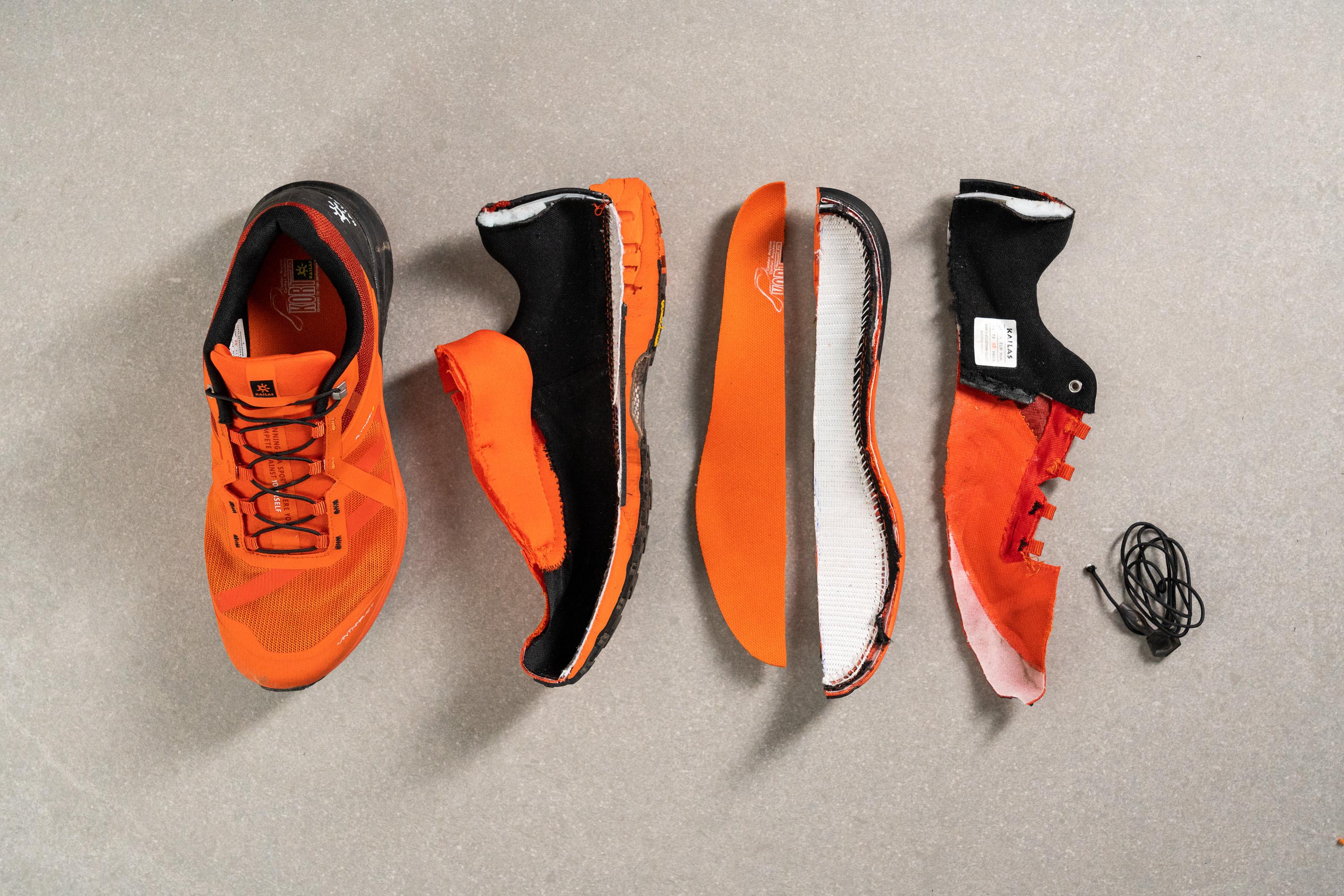
Excellent fit, heel-to-toe!
Kailas really hits the spot in terms of fit. I never had an issue with any of their shoes so far, the Flythorn Air 2.0 included. The trainer creates a really nice foot-hugging experience that makes me feel secure when cornering, shifting side-to-side, and even stepping on some moving rocks.
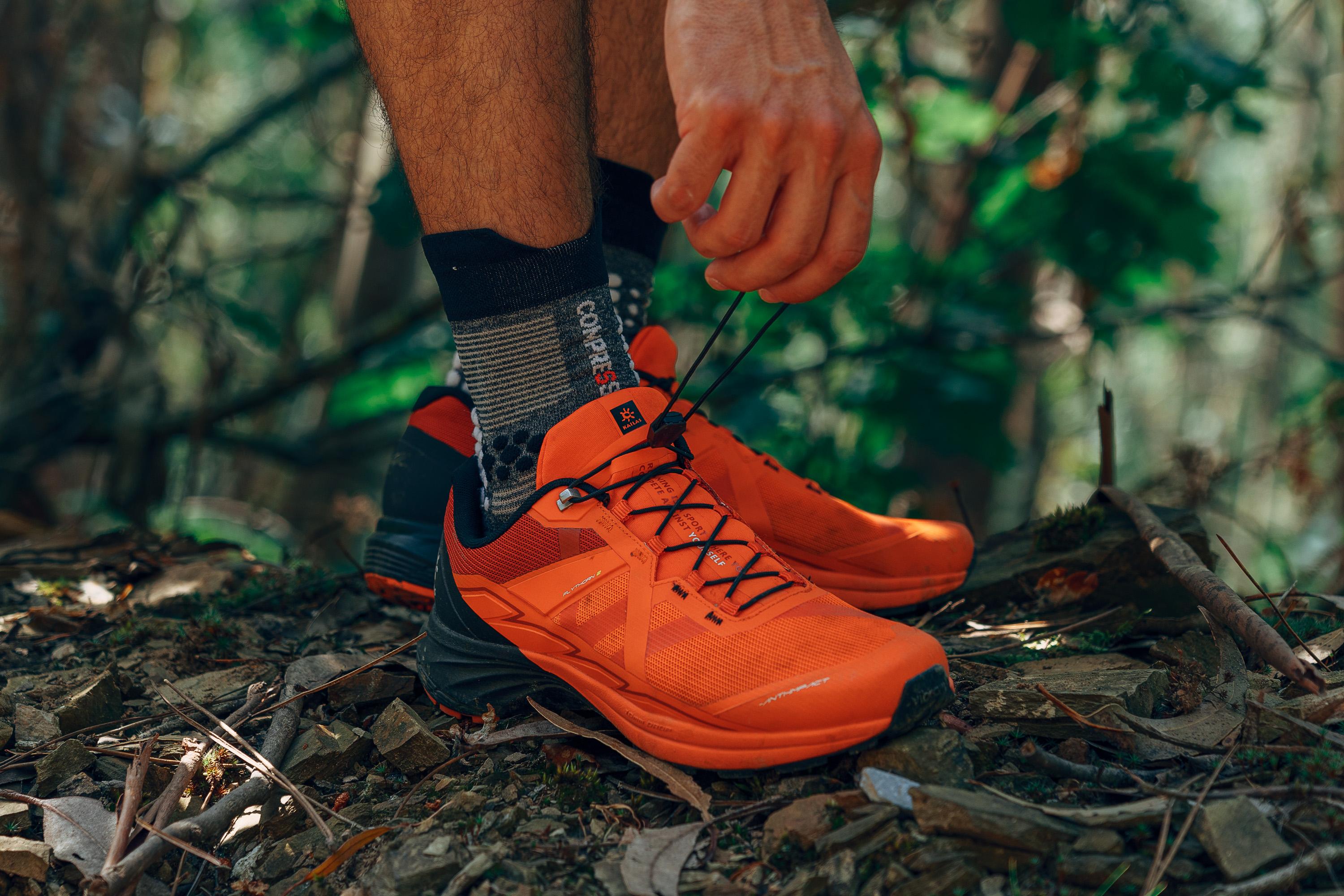
There is also a good amount of room in the toebox: not too spacious nor too tight for my normal-width feet.
The heel hold reminded me of the famous “ASICS clutch,” with its well-padded collar and structured rearfoot. The heel stiffness receives a strong 5/5 from me and the heel slippage is out of the question in this shoe.
Be sure to check the sizing
Because Kailas is a relatively new brand in the running shoe category, you should check its size chart to see if your regular shoe size works.
As for me, I had to size up from my usual EU 41 (US 8) to EU 42 (US 8.5). Before ordering, I measured my foot length (260 mm) and checked the official Kailas size chart.
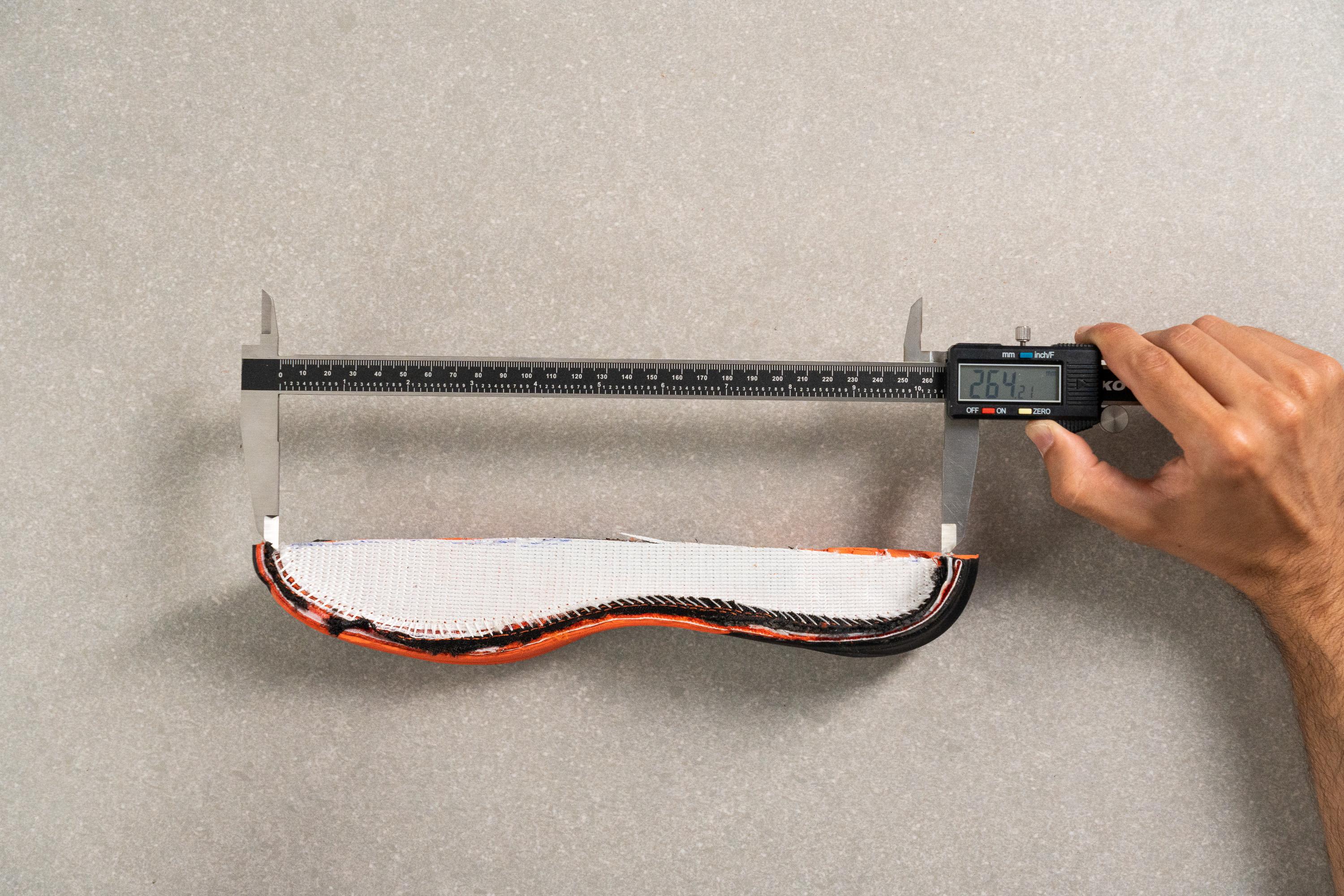
After cutting the Flythorn back in the lab, I also measured the insole length (264 mm). This makes sense: my foot length (260 mm) + a little extra space for the materials and padding (4 mm).
Quick lacing makes your life so much easier
The bungee lacing on the Kailas Flythorn Air 2.0 takes seconds to adjust. I think I’ve been spoiled by Salomon in this regard. The BOA, however, is still number one for me and I LOVE how it works on the Kailas Fuga EX BOA.
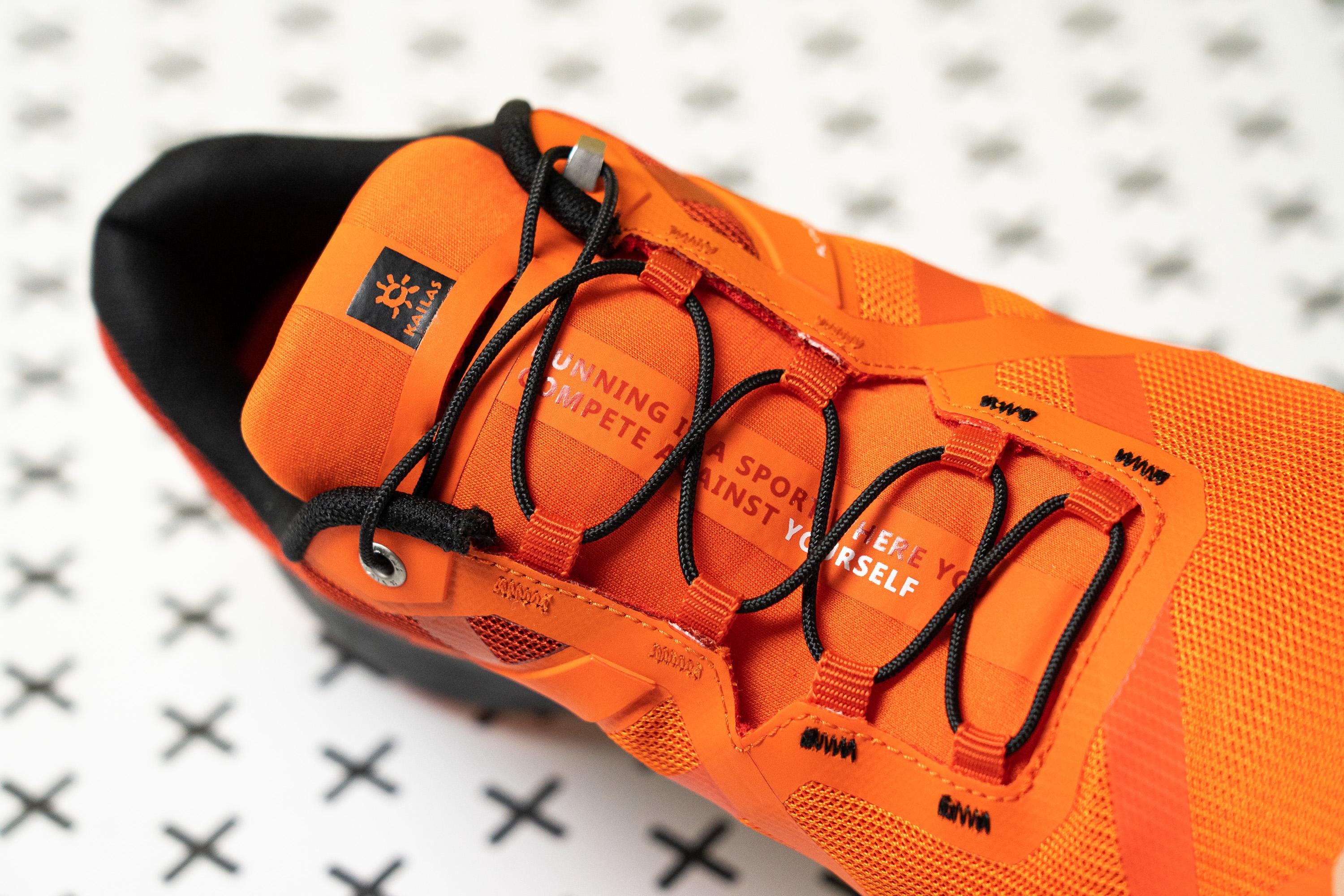
The Quick lacing is perfectly complemented by the lace pocket on the tongue, Once you’re done regulating the fit, you can safely store excess cords inside this pocket.
Cushioning is NOT so soft and bouncy on the Flythorn Air 2.0
After running only 5K in this Kailas shoe, I immediately experienced pain in my shins (it was my soleus muscle to be specific). That didn’t happen with any of the Kailas shoes I’ve tested or any of my other running shoes for that matter.
Even though the stack height is 30.6 mm (insole included) and the drop is 10.3 mm (both above average), I kept wishing there was more cushioning.
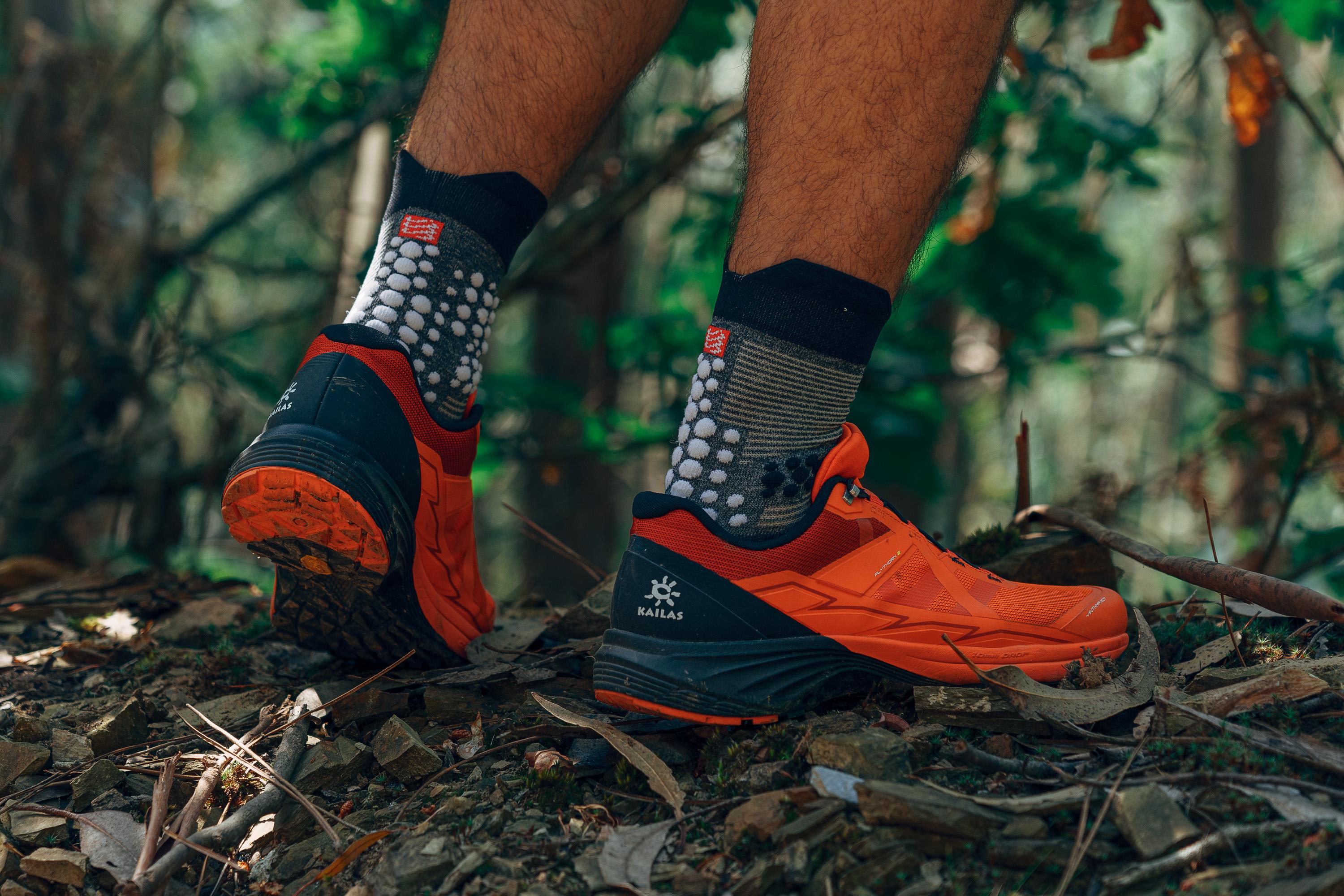
I also found the ride somewhat dull and unresponsive. The shoe is branded for speed but I haven’t really got that impression on the run. It feels more like a basic daily trainer for slower paces.
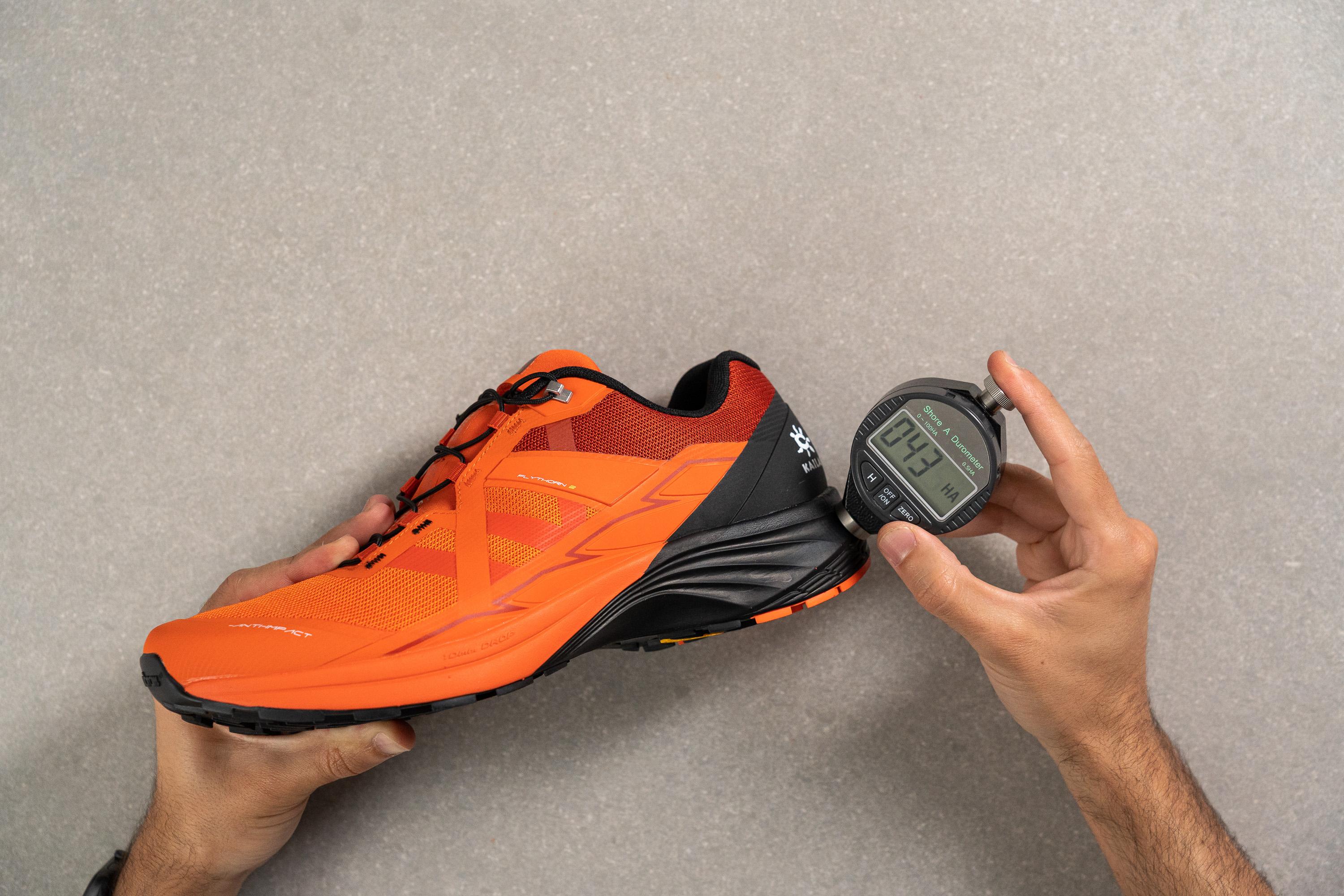
Measuring the firmness at the lab, I discovered that it’s 43 which is a bit denser than the average 40.5. Here is the visual backup:
On the bright side, it is quite stable and offers more ground feel, especially on the more technical terrain.
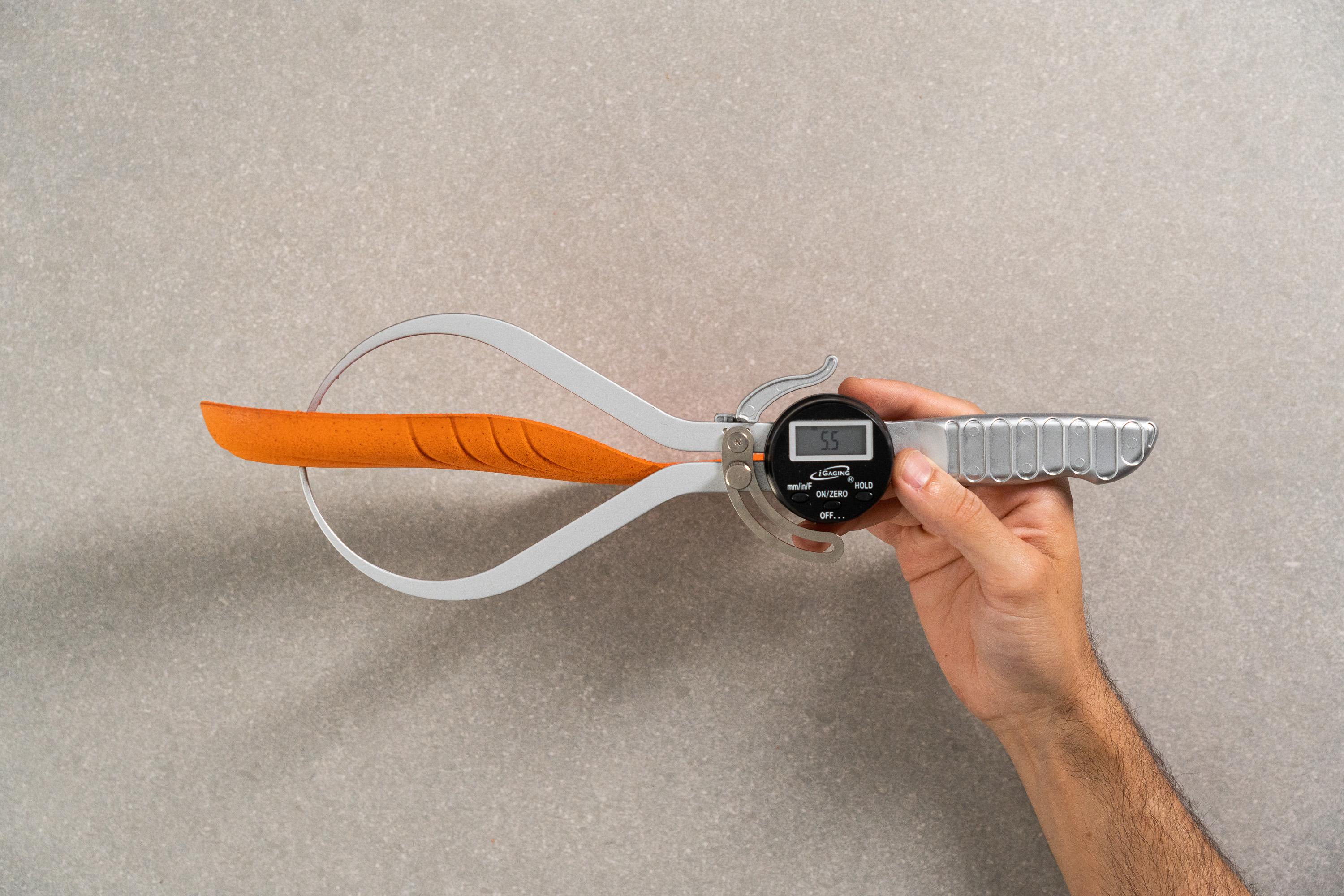
Some underfoot comfort is offered by the well-cushioned insole. It is 5.5 mm thick which is actually thicker than the average 4.6 mm. The insole is easily removable in case you are concerned about being able to wear your custom orthotics with the shoe.
Impressively flexible for such a thick sole
I couldn’t believe how flexible this Kailas is! The Kailas Fuga EX models are quite stiff, especially in the forefoot. But the Flythorn Air 2.0 sets records in terms of flexibility. Despite the 30-mm heel height, it bends almost like a minimalist shoe. Just see how easily I can twist it in my hands!
I also measured the flexibility in the forefoot and it showed 22.1 N, which is significantly more flexible than the average 30.8 N (a smaller number means that it’s more flexible).
So, in exchange for its lack of bounce, the shoe helps you feel more manoeuvrable and in control.
Kailas Flythorn Air 2.0 feels heavier than expected
I cannot really call the Flythorn a “heavy shoe” because in my US size 8.5 it weighs 291 g. This is right at the average of trail running shoes (298 g).
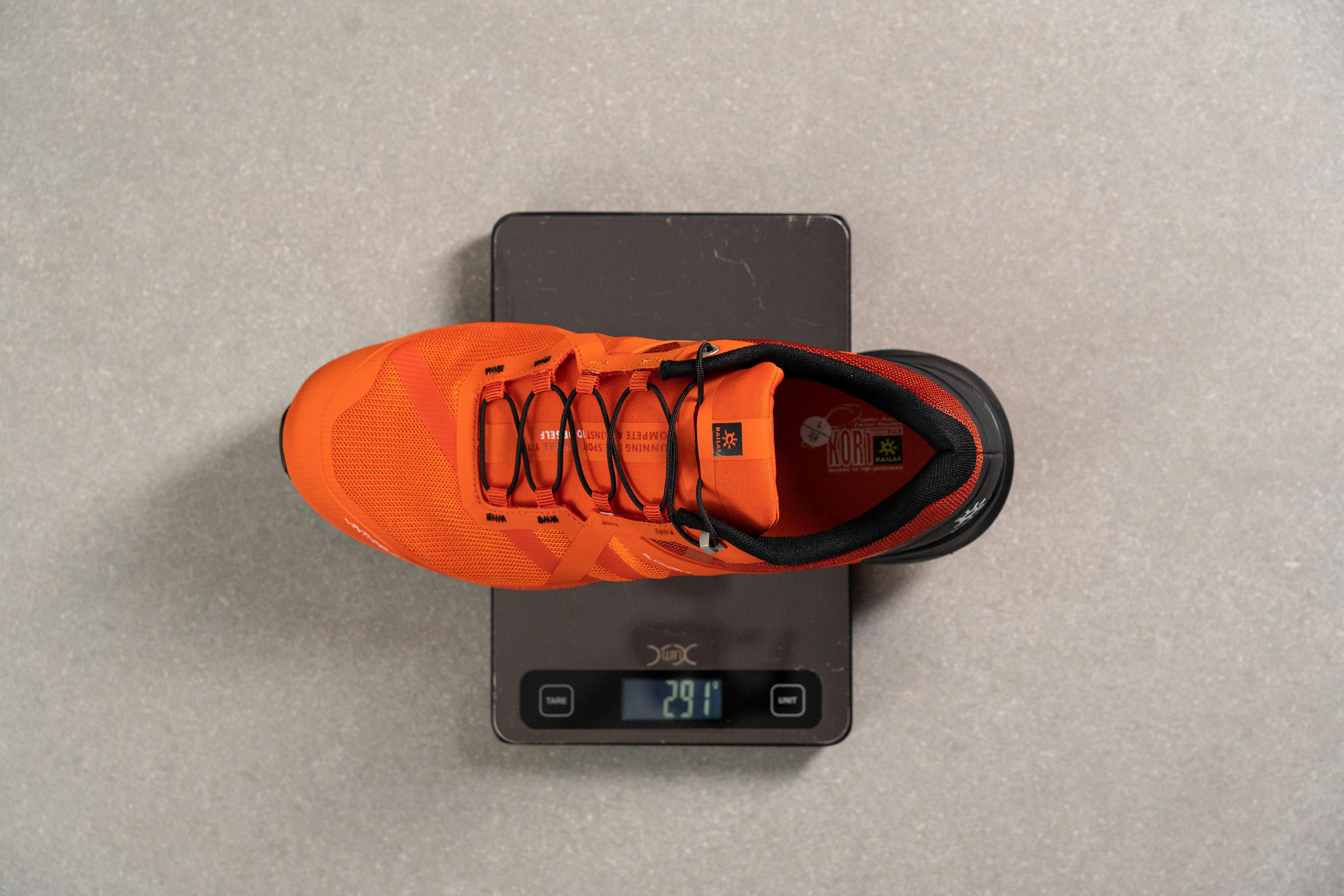
What makes it feel like it’s dragging the foot in my opinion is the lack of bounce in the midsole.
The grip is alright but could be better for trails
Yes, it is a hybrid (road-to-trail) shoe with 3-mm lug depth, so you can’t expect the top-notch grip. And yet, I’ve encountered other shoes with short lugs that are much more efficient in terms of grip on the trails. For example, Altra Mont Blanc and its 2.8 mm treads.
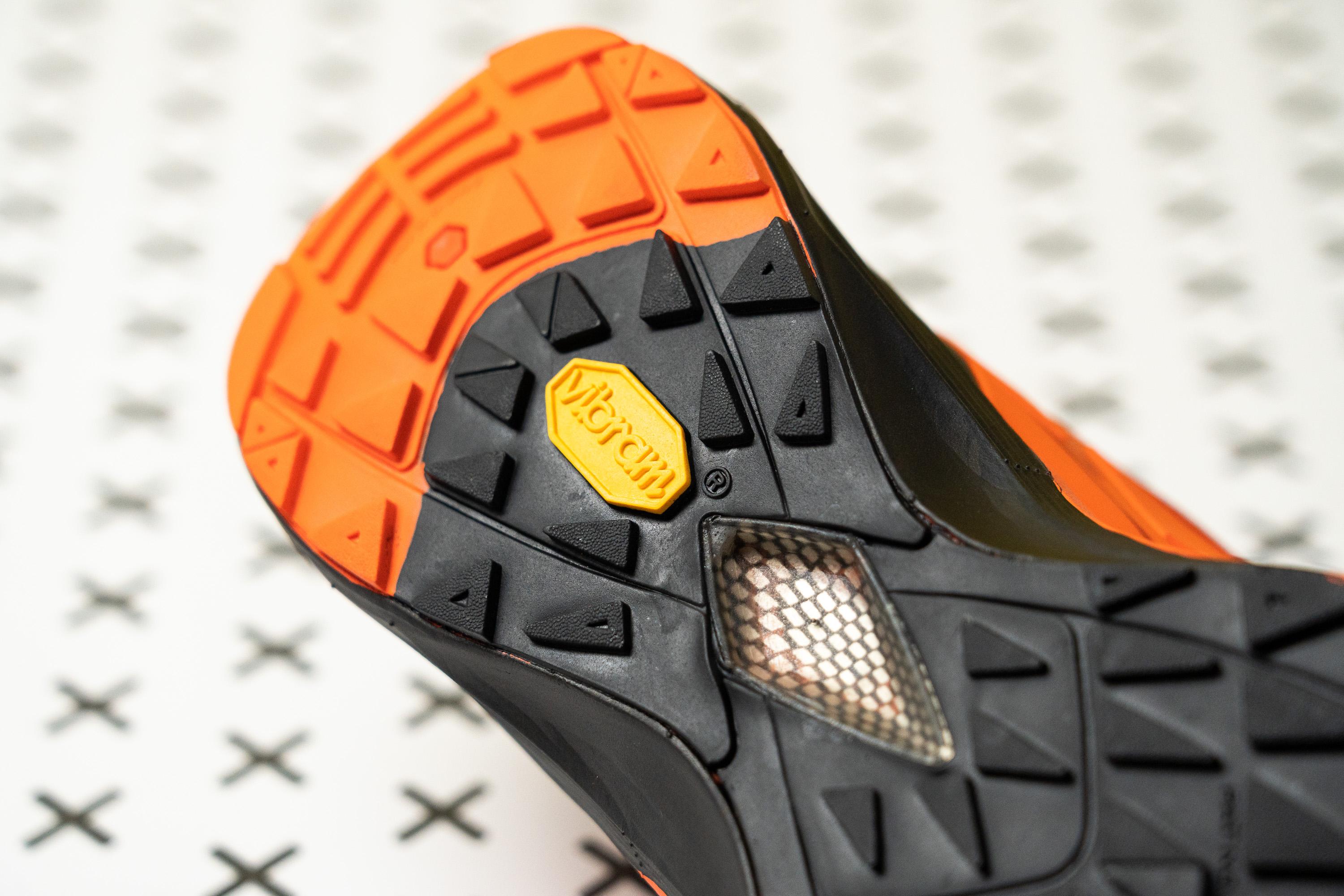
But if you are not planning to use this Kailas shoe on some really technical terrain and mostly stick to the roads and hard-packed paths, then it’s actually alright.
ZERO questions about the shoe’s durability
I have strong faith in the Flythorn and all the other Kailas shoes that I’ve tested. The brand really put its best foot forward in terms of quality of materials and craftsmanship.
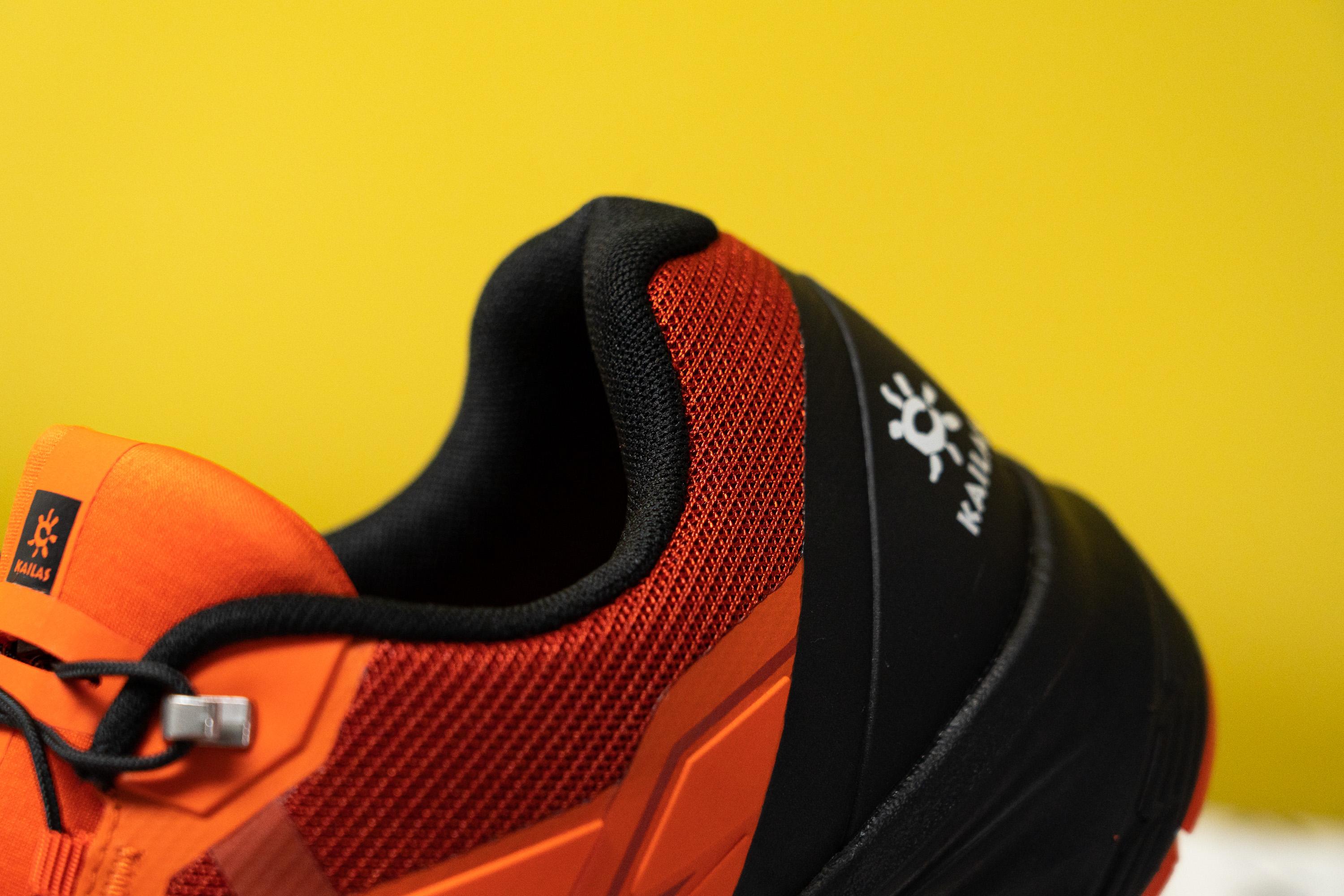
Just look at those seamless overlays and sturdiness of the fabric.

The TPU toecap deserves special attention. Meant as “Anti-Impact,” it safeguards your toes from the unfortunate bumping into rocks and roots on the trail. And what’s more, it’s not so easy to rip or chafe.
It’s breathable enough
Testing the Flythorn Air 2.0 on a warm afternoon in June, I was hoping that the word “Air” in the shoe’s name stands for plenty of ventilation. I’m not saying that I was disappointed, but just underwhelmed.
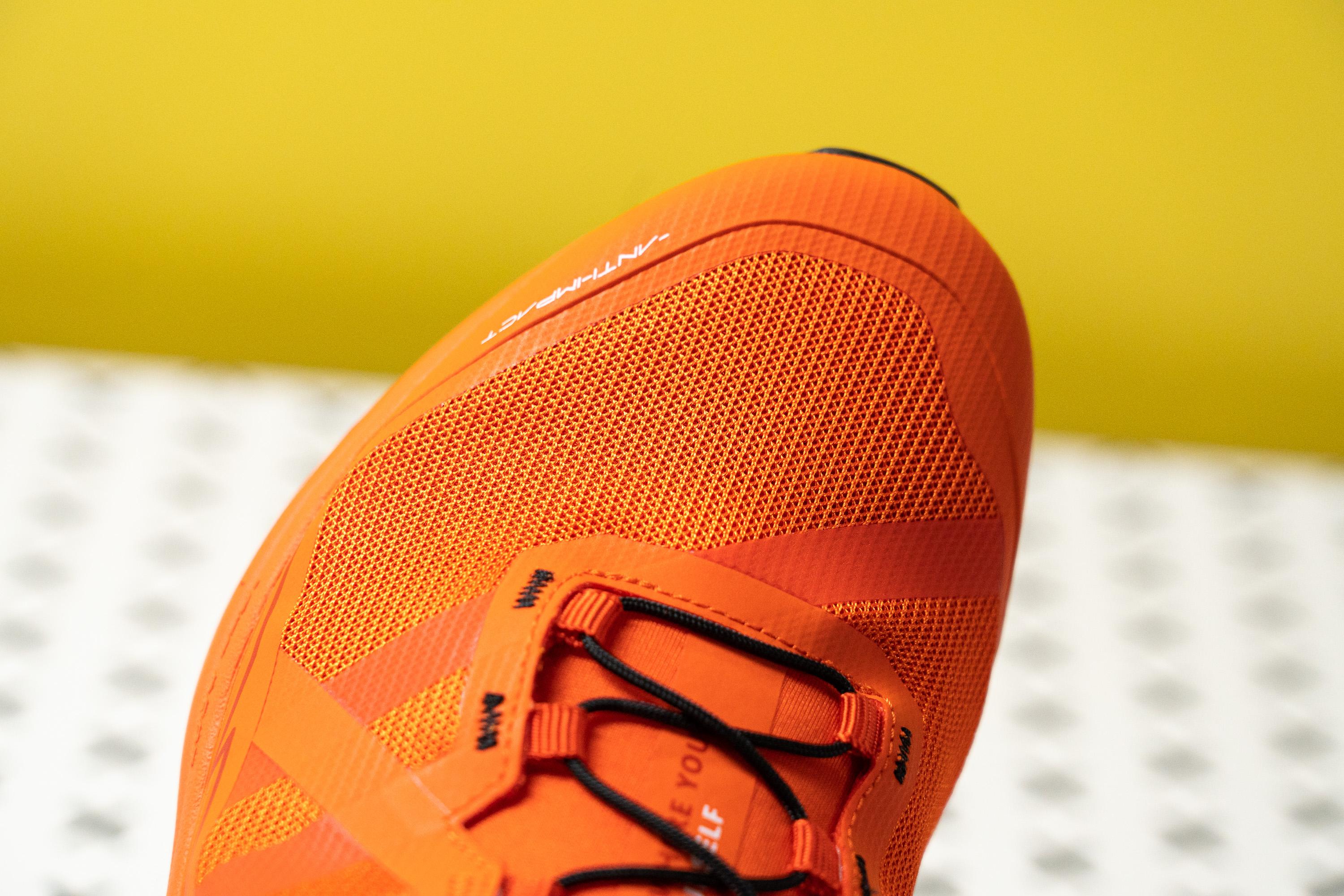
This Kailas shoe wouldn’t be my first choice on a warm summer day but the overall breathability is alright.

